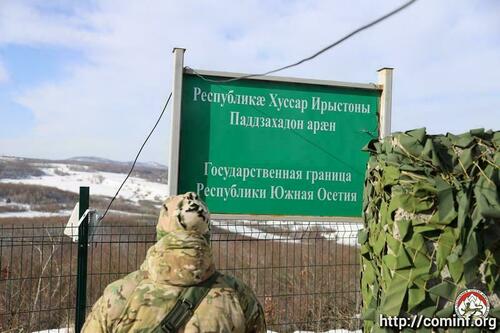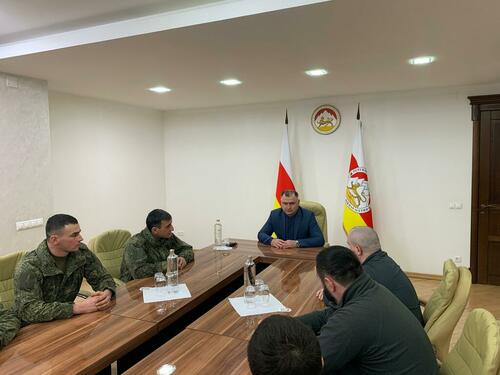In accordance with the NATO-Georgia military plans, on 6 May-1 June, military exercises will be held on the territory of Georgia with the participation of up to 1,300 military staff from about 20 countries. Do these military maneuvers imply any threat to the security of the Republic of South Ossetia and what sort of work should be done by RSO Defense Ministry and other structures to neutralize a possible escalation of the situation in South Ossetia throughout the period of preparation for the above exercise?
Yury Tanaev, Defense Minister of RSO:
These exercises in May-June bear no threat to South Ossetia since they spoke about 1,300 personnel, while we have 3,000 plus the Russian contingent. Potentially there is a threat, if the neighboring country carried out exercises in the vicinity to borderline area and other neighboring states or allies are involved, this speaks for their getting prepared for a war. This again underlines that Georgia did not accept the situation and that Georgia will attempt to tear away and seize our territories; their allies, that is, Western Europe and the United States are helping them in this and encourage them for a new aggression.
Alan Pliev, Deputy Foreign Minister of RSO:
It is clear that with these actions Georgia is trying to exacerbate the situation, and besides, we are having Parliament election on 31 May. Taking into consideration the intensive armament of the Georgian forces and the refusal of Georgia to sign the agreement on non-use of force, we can expect provocations with an actives support by Georgian mass media. However, it is unlikely that Georgia will ventures in a full-scale war having in mind their disgraceful failure and the presence of Russian military base in RSO. Certain incidents are possible.
it is for the neighboring country to decide whether to carry out or cancel military exercise, but the defense structures of South Ossetia should be in be on full alert.
Irina Kadzhaev, political scientist:
The threat to the security of South Ossetia coming from Georgia is still on the agenda and NATO continues feeding the aggressiveness of Tbilisi by helping in restoring military capacities of the Georgian army and organizing military exercise in the region of a recent full-scale war.
Today the situation is much more serious than before the August 2008. The then threat endangered only South Ossetia and Abkhazia, but after Russia’s recognition of these states’ independence and conclusion of agreements envisaging the presence of Russian armed forces on their territories, a possible recurrence of war will be limited to the Caucasus.
The new President of the United States did not bring about any crucial changes in relation to Georgia, but having a dominant role in NATO, he still insists on Georgia’s soonest joining the Alliance. If it happens, the world would face a more serious threat than the crises of the Cold War.
The previous experience of Georgia’s militarization showed that despite the warnings of his Western allies, the Saakashvili regime had unleashed the war. Tbilisi had not its lessons learnt from its failure and “restoration of territorial integrity” is still an idée fixe for the Georgian authorities. There are no guarantees that Georgia would give up its military ventures. Under the new realities, Georgia’s war against South Ossetia may easily turn into NATO’s war against Russia. This would be a third world war.






